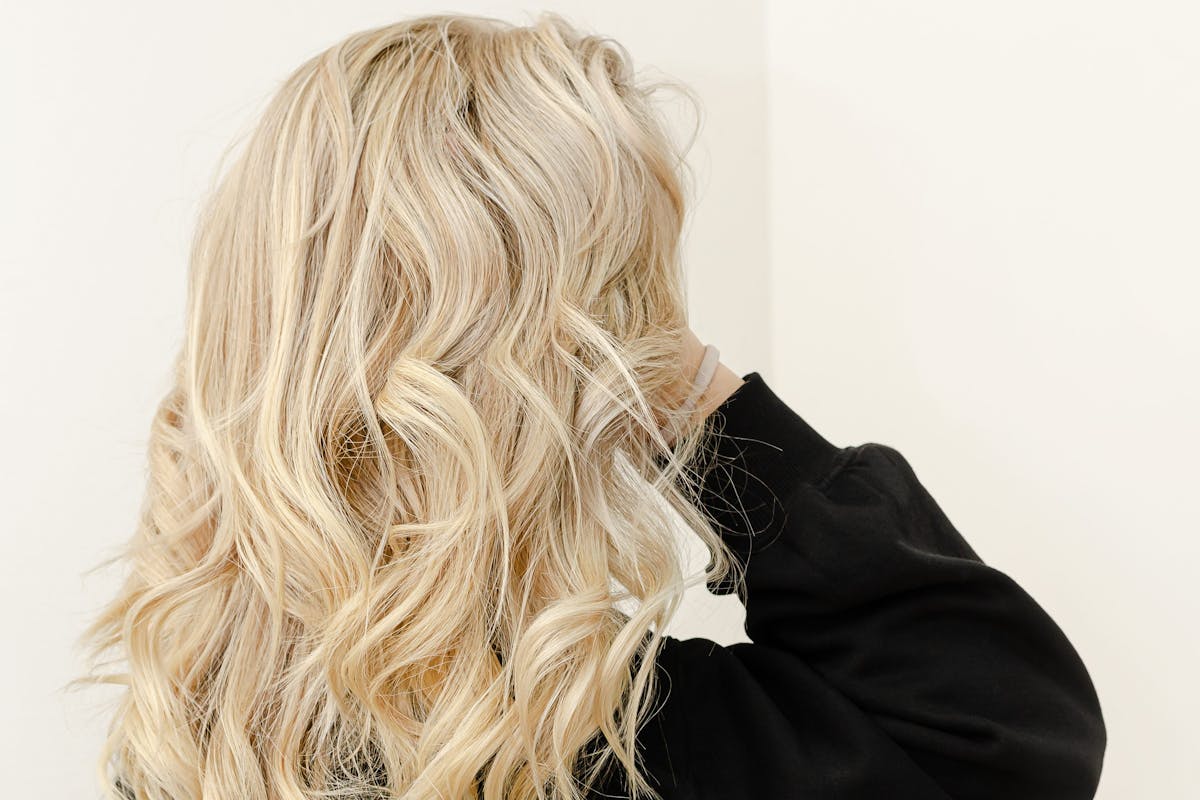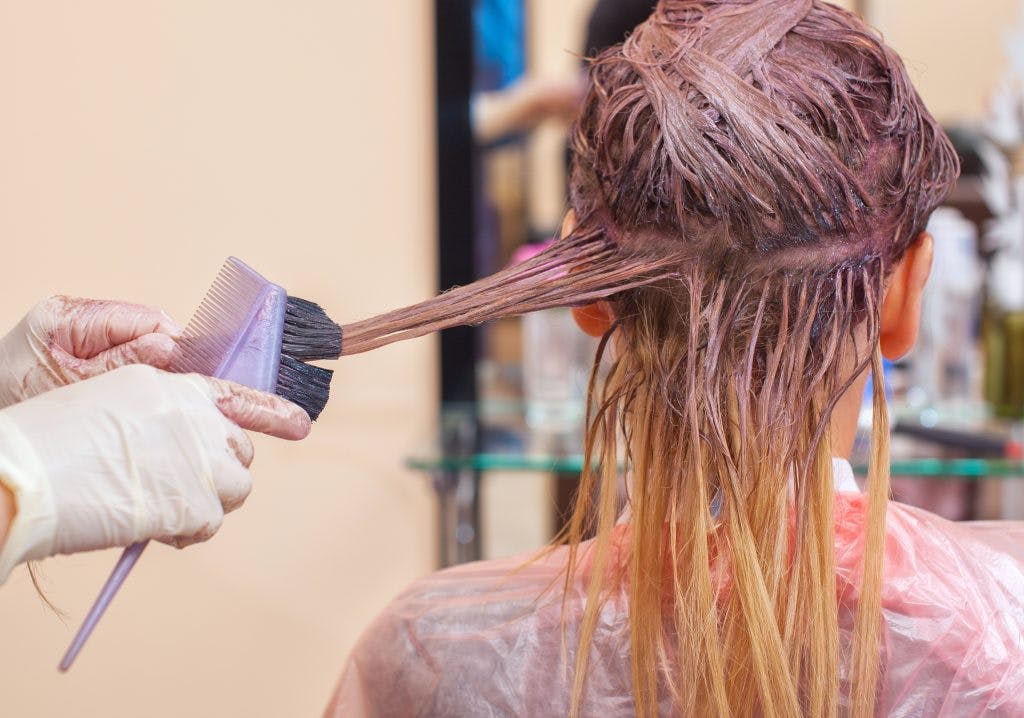Going blonde is a traumatic event for your strands. Bleach strips the pigment from your hair shaft through a process called oxidation. (Hydrogen peroxide and ammonia are the most commonly used bleaching solutions.) To allow the color to fully penetrate, bleaching also raises your hair’s outer cuticle, which can cause dryness. And if you choose to stay blonde, the effects are intensified each time the process is undertaken. In other words, the more often you bleach or highlight your hair, the more damaged it will be. Potential damage from bleaching includes dryness, brittleness, breakage, split ends, and inelasticity.
The Nutrafol Guide To Blonde Hair Care
Lifestyle
7 Min Read

Get hair, health, and science news delivered right to your inbox.

Medically Reviewed by
DR. MELISSA ANZELONE, N NDHow bleach affects your hair
What to know before you bleach
Because bleach works best on unprocessed hair, experts recommend not coloring your hair for at least three months prior to bleaching it. Your hair is more susceptible to damage if it has been dyed or has undergone chemical treatments prior to being bleached. For most people, the best plan of action is to avoid dyeing the hair for several months beforehand.

Do your research to determine whether your desired shade is even possible. For example, dark hair requires more than one treatment to achieve a bright blonde shade. People with dark hair should plan to space out their bleaching sessions over the course of several months. Keep in mind that the multiple rounds of bleach it will take to achieve that lighter shade could leave your hair damaged.
Certain skin types might also be sensitive to the chemicals used in the bleaching process. Before bleaching your hair, you should pay a visit to your dermatologist and ask for a patch test to see how your skin reacts to bleach. Reconsider bleaching if you have dermatitis, psoriasis, eczema, a scalp condition, or any type of allergic reaction to the patch test.
Tips for maintaining blonde hair
1. Avoid heat styling and sun exposure
Bleached hair is more porous, and therefore more vulnerable to other chemical and non-chemical hazards. These include everything from heat-styling to environmental factors like sun exposure. Heat changes the structure of the hair cuticle, causes lower moisture content, increases friction, and is associated with hair breakage. Try reducing or limiting heat styling like blow-drying, straightening, and curling to avoid additional thermal damage to the hair.
2. Become BFFs with a tub of coconut oil
Repeated bleaching raises the cuticle, allowing loss of moisture from the hair strands. So it’s important to give your mane some extra conditioning post-bleach. To compound matters, bleach also reduces the amount of protein in the hair, which leads to breakage.
Researchers found that even better than trying to moisturize after bleaching is to apply coconut oil to the hair both before and after bleaching. Coconut oil, as a triglyceride of lauric acid, has a high affinity for hair proteins and can penetrate inside the hair shaft. Of all of the oils tested, only coconut oil was found to prevent protein loss from the hair.
3. Go sulfate-free
Shampoo with surfactants like sodium laureth sulfate cleanse hair of its natural sebum. With frequent shampooing, hair can become dry and more exposed to friction and weather. Try using sulfate-free shampoo and hair care products to minimize dryness and clean up your hair routine. Bonus: After washing, use a microfiber towel to dry your hair faster and prevent breakage and frizz.
4. Support your hair from within
You can also take hair-boosting supplements to help support the health of your strands. Nutrafol’s Core formulas have ingredients that help support improved hair strength, shine, and texture. It contains antioxidants like vitamin C and collagen, which help protect the hair and follicles from potential free radical damage.
5. Feed your hair
Certain foods also contain nutrients that help to optimize hair health. Consider adding some of these nutrient-dense foods to your daily meal plan!
- Eggs are a great source of protein, zinc and selenium.
- Avocados contain vitamin E, an antioxidant like vitamin C, and essential fatty acids.
- Seeds are also a great source of nutrients like zinc, B vitamins, and vitamin E, as well as essential fatty acids.